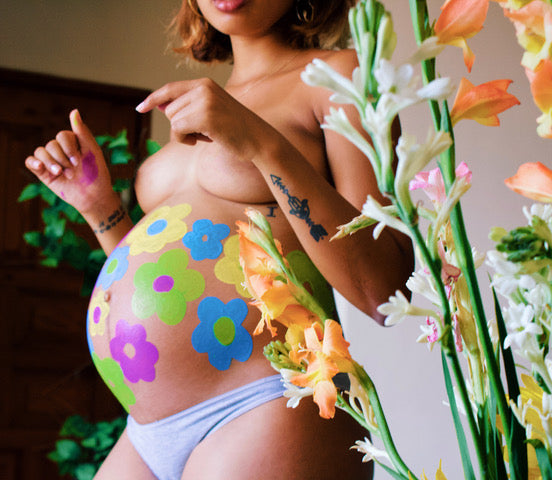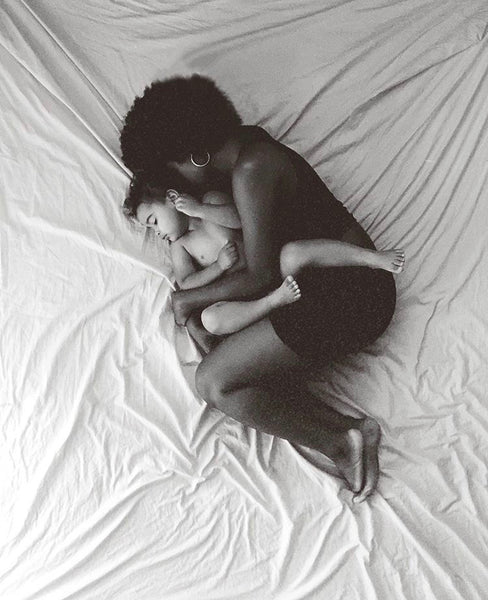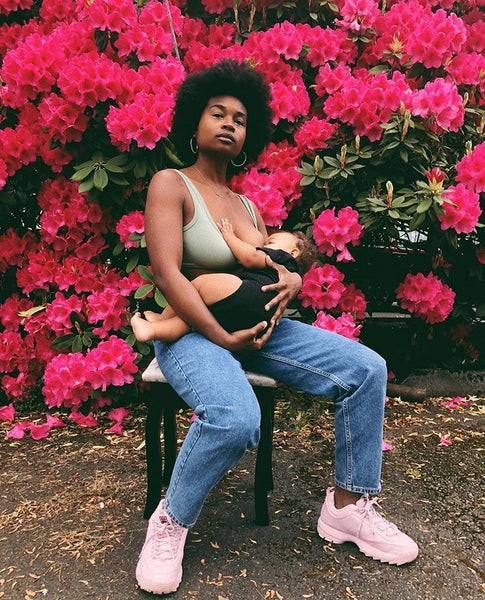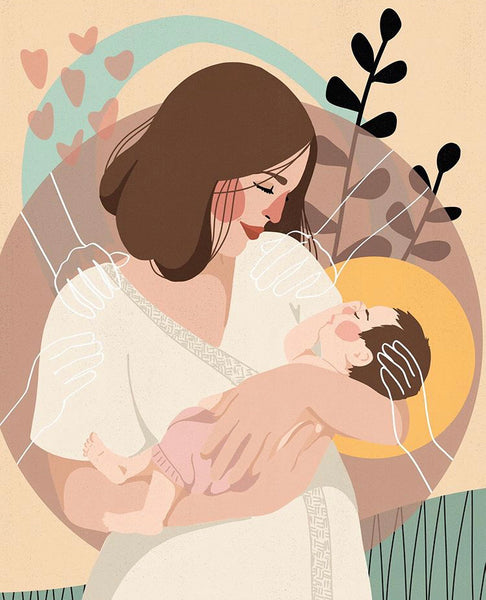 Photo courtesy of Amanda Bjorn www.amandabjornphotography.com
Photo courtesy of Amanda Bjorn www.amandabjornphotography.com / Model & Momma Renata Suarez
Congratulations! You just had a baby! You have successfully brought new life into this world. Your body has performed one of the greatest feats humanly possible. You now have a new human to help learn and grow and that is exciting and challenging at the same time.
Your family and friends are likely asking you a lot of questions about the new addition to the family and much of your daily focus is on how to keep this tiny human alive, but you may notice that you are in some ways, also a new human.
Having a baby can change your body in many ways, and often, women tend to notice a change in their reproductive organs. One change that they may notice almost immediately is in their periods.
For the 9 months that your baby was cooking inside of you, you did not have your period. As much as your period is a natural, monthly occurrence in some ways it was nice skipping out on it for a few months. One thing that you may have noticed, likely while you were in the hospital, is that you were bleeding after delivery. This is entirely normal. You probably noticed that for the first few weeks after delivery you were still bleeding. And that bleeding turned into discharge. This discharge is different from other discharge that you have had before. By this point, you might be thinking “Will I have this discharge for the rest of my life? When will my period start? Will I ever feel normal again?”
Many women have come into my office after having a baby with these very common and normal concerns, and I like to let them know that they are not alone.
The first area of concern I’d like to address starts with bleeding after delivery. After a baby is born, delivered either vaginally or through a c-section, the fun doesn’t stop there. Although many of the people in the room are now focused on the baby that just entered the world, there is more to this story for mom, and that is called the placenta, also commonly referred to as the afterbirth. The placenta is what feeds the baby in utero and once the baby has transitioned to the outside world, a woman’s body doesn’t need it. It is expelled from the body after delivery.
 Photo courtesy of Bri McDaniel www.brimcdanielphotography.com
Photo courtesy of Bri McDaniel www.brimcdanielphotography.com
After it leaves the body, the uterus that housed the baby and the placenta now has to shrink back to normal. This is one of the reasons why women don’t look pregnant for the rest of their lives after birth - the uterus shrinks back to its pre-pregancy size! Because the uterus is enlarged and does not have a baby inside, it bleeds because there are a lot of open blood vessels from where the placenta was attached to the uterus. The uterus is a muscle, so it contracts itself to get back down to a normal size. As it is contracting down, the open blood vessels start to close off. This causes the bleeding to slow down. Also, as the uterus tries to return itself to its non-pregnant glory, the lining of the uterus, the endometrium also needs to revamp itself.
So, as the uterus tries to return to its former glory, you may experience bleeding and discharge. The blood and discharge many times have a different odor than we are used to but it should not be offensive. These smells just reflect the chemical makeup of this discharge.
The next big question I hear is when will your period start again after having a baby? The answer is that it depends. Your period is the end result of the complex bodily process of the ovulatory menstrual cycle. The ovulatory menstrual cycle relies on producing an egg that gets released by your ovaries. It also relies on you not getting pregnant which then causes the lining of your uterus to shed (the endometrium).
In the postpartum period, your body is under the control of many different hormones at levels that are different than before pregnancy. Due to these changes, it may take awhile for you to begin to ovulate (produce an egg) again and this can cause your period to be delayed. Also, if you are breastfeeding, this can also affect ovulation because there are hormones that your body makes while breastfeeding that can suppress ovulation.
 Photo courtesy of Bri McDaniel www.brimcdanielphotography.com
Photo courtesy of Bri McDaniel www.brimcdanielphotography.com
It can be hard to predict exactly when a postpartum woman will start having periods again and how long it will take them to have a regular pattern.
Next, many postpartum moms ask why their period is heavier/lighter/more painful than before once it returns? The answers to those questions are not very straightforward also. There are so many factors as to why a woman would notice a change in her cycle. Sometimes, it could be because she was on birth control before she decided to start trying to conceive and she is currently not on birth control. Your periods can be different on and off of birth control. There could have been a change in your health during pregnancy that could change your period.
If you do notice a difference in your period, you should always seek the advice of your medical provider in order to help you figure out what is going on with you specifically.
Lastly, a question that I often get is about menstrual products. When can I start using them again? Using menstrual products like pads and menstrual underwear, that do not go inside of the vagina, are recommended for the first 6 weeks after delivery. This is to reduce the chance of infection of the uterus, since it spends much of those first weeks after delivery, recovering. After six weeks, a woman may return to whatever menstrual products she used before and is comfortable with (including tampons, menstrual cups, and menstrual disks).
 Photo courtesy of Tracy Baker www.yellowhouse.ca
Photo courtesy of Tracy Baker www.yellowhouse.ca
Being a new mom has its ups and downs for many reasons. There are so many changes that happen to your body and your life. It is an adjustment period, but know that you’re not in this alone! Your medical providers are here to help you through this time and address any questions or concerns you have!
Heather Irobunda, MD, FACOG
Email: heather@irobundamd.com
IG: @drheatherirobundamd
TikTok: drheatherirobundamd
Web: www.irobundamd.com
#drheathershealth




 Photo courtesy of Bri McDaniel
Photo courtesy of Bri McDaniel Photo courtesy of Tracy Baker
Photo courtesy of Tracy Baker